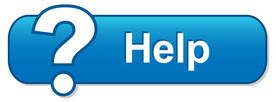Selecting the right key phrases and keywords
The most important first step in SEO is to pick the right keywords and keyphrases. Let's start by thinking from the customer perspective and how google works.
Customers only know what they want to search for, they may not have heard of your company before. Customers use a search engine to find you. First and foremost, a search engine can only find pages that contain the keywords being searched. If the keywords are not on your pages, then the search engine will not return any results (irrespective of ranking). The search engine treats all the pages of your website individually. It will only return results for the pages on your website that contain the keywords. The search engine will not neccessarily make word or industry associations.
Keyphrases and keywords mean much the same thing, but key phrase more clearly identifies you are talking about more than 1 word.... When talking about keywords from here on, we are really talking about phrases. eg if you are searching for accommodation in Hamilton, then in google you would probably search for "accommodation hamilton". This is a keyphrase, where as the individual words are keywords. If you searched for "accommodation" only then you might find accommodation in timbuktu, or if you only search for "hamilton" then you might find a number of famous people in history with the last name Hamilton.
To be even more specific, you might also add a country name to the keyphrase, as there is a Hamilton town or city in most countries and states. So an optional keyphrase might be "accommodation hamilton new zealand". This is good for international searchers, but for people in your own country, who use the search filters for their own country, then "accommodation hamilton" is enough.
So assuming we're a hotel in a suburb called Frankton in Hamilton, New Zealand, let's list all the likely keyphrases we are working on.
- accommodation hamilton nz
- accommodation hamilton
- accommodation waikato
- accommodation frankton
- accommodation frankton hamilton
- hotel hamilton nz
- hotel hamilton
- hotel frankton
- hotel frankton hamilton
- hotel waikato
- etc
Notes: We do not need to optimise for "hotel nz" as the scope of that is far too large... we also don't optimise just for any of those keywords individually, because that is too large also.
So what does this mean to your pages?
Well if the words above are the words that someone might use to search for a hotel in your suburb, then these are the words you need to put on your pages. Now that might seem obvious, but actually, most people don't do it... Google is not as smart as most people think, they do not read your contact us page to work out where your hotel is situated...
So on your home page you need to write something like the following as your first paragraph.
- We provide the best accommodation in Frankton, Hamilton, NZ. When you are visiting the Waikato, come stay at our hotel in Frankton, Hamilton New Zealand.
Please read the next section on the first paragraph
Each page is different
The search engine treats all the pages of your website individually. It will only return results for the pages on your website that contain the keywords.
This is an opportunity not a problem, optimise each page of your website for a different keyphrase, then expect that google will return that page and not your home page if someone searches for the matching keyphrase. Think of it like fishing, having the right hooks and bait for the right fish, but several hooks on the line to catch many different fish.
Misspellings / Synonyms / Other Languages
Give some consideration to other languages, misspellings, synonyms, aliases, abbreviations and acronyms. Your searchers might use any number of words to search for products and services like yours, so try to use all the equivalent names in your page text.
If you are in tourism, or your service/product is of interest to foreign language speakers, then use multilingual keywords and phrases somewhere in your website - perhaps dedicate a page to each language. Even in your home country, non english speakers are a significant population, Korean in NZ, Spanish in the US. There are several language translators on the internet like http://babelfish.altavista.com/
Think about the product or service keywords that someone would enter in a search engine trying to find a business "like yours". It might be obvious from the photos and branding what your product is, but imagine a common mistake: an appliance store has one menu button called televisions, and under that page they have links for "plasma" and "14 inch", however, the words "plasma" and "television" never appear on the same page. If someone is likely to be searching for "plasma televisions" then you need to have the phrase "plasma televisions" on the page that has a picture of the plasma television. Preferably mention that phrase several times (even put some common misspellings at the bottom of the page, in small print). The higher up the page the words appear, the better. Try and put the sentence "Plasma televisions from WidgetCo are the best..." as the first sentence on your product information pages, before listing all the specs.
Not everyone can spell. Although some of your customers are likely to send complaints to you about your misspelling, you could also try adding a sentence to the bottom of your page like so.
"for all the people who can't spell, we include some popular alternatives to our keywords. acommodation, accomodation, motel, pension, hostel, etc "
